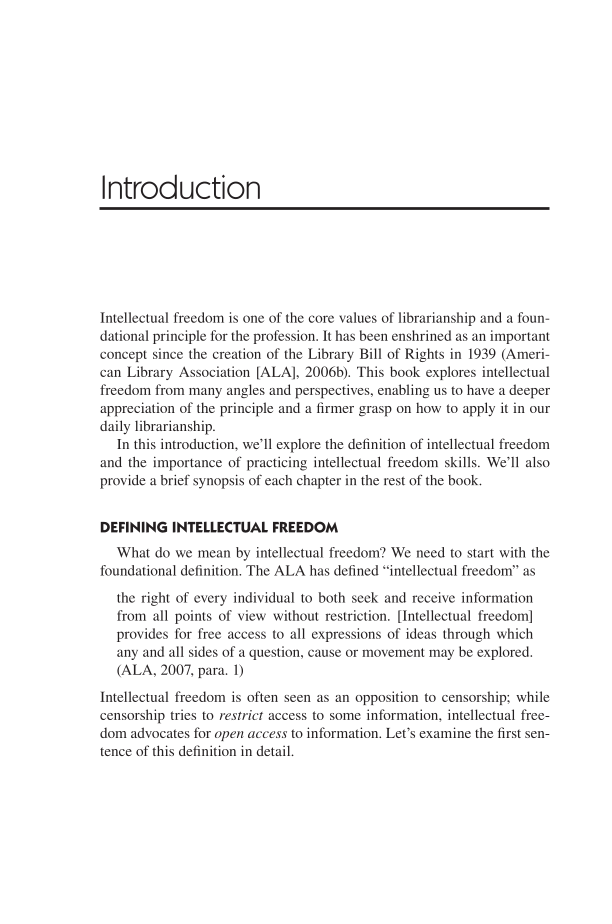Introduction Intellectual freedom is one of the core values of librarianship and a foun- dational principle for the profession. It has been enshrined as an important concept since the creation of the Library Bill of Rights in 1939 (Ameri- can Library Association [ALA], 2006b). This book explores intellectual freedom from many angles and perspectives, enabling us to have a deeper appreciation of the principle and a firmer grasp on how to apply it in our daily librarianship. In this introduction, we’ll explore the definition of intellectual freedom and the importance of practicing intellectual freedom skills. We’ll also provide a brief synopsis of each chapter in the rest of the book. DEFINING INTELLECTUAL FREEDOM What do we mean by intellectual freedom? We need to start with the foundational definition. The ALA has defined “intellectual freedom” as the right of every individual to both seek and receive information from all points of view without restriction. [Intellectual freedom] provides for free access to all expressions of ideas through which any and all sides of a question, cause or movement may be explored. (ALA, 2007, para. 1) Intellectual freedom is often seen as an opposition to censorship while censorship tries to restrict access to some information, intellectual free- dom advocates for open access to information. Let’s examine the first sen- tence of this definition in detail.
Document Details My Account Print multiple pages
Print
You have printed 0 times in the last 24 hours.
Your print count will reset on at .
You may print 0 more time(s) before then.
You may print a maximum of 0 pages at a time.














































































































































































































